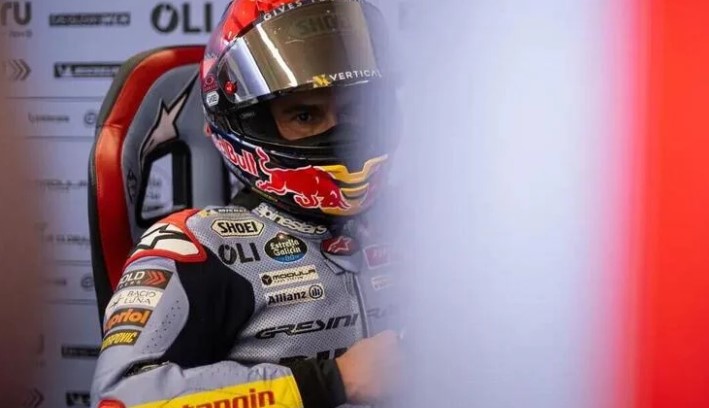
Carlo Pernat on Marc Marquez: “Marc Marquez is a Pinocchio”—The Allegations and Motives Behind the Bold Statement
MotoGP is no stranger to controversy, but when veteran manager and paddock insider Carlo Pernat branded Marc Marquez a “Pinocchio,” it left fans and critics questioning Marquez’s integrity and motives. Pernat, a respected figure with decades of experience managing top talents like Valentino Rossi and Loris Capirossi, chose sharp words to describe Marquez, igniting widespread debate. Here, we delve into Pernat’s allegations, Marquez’s responses, and why this feud could have broader implications for MotoGP’s competitive landscape.
What Did Pernat Say and Why?
In an explosive interview, Pernat publicly accused Marc Marquez of manipulating his narrative to suit his ambitions and maintain his influence in MotoGP. Pernat argued that Marquez had been insincere about his intentions and motivations, especially concerning his struggles with injuries and his plans with Honda. By calling Marquez a “Pinocchio,” Pernat implied that Marquez might be strategically bending the truth to mask his true plans. Pernat’s statement touched a nerve in the MotoGP community, painting Marquez as someone who is not forthright with fans or even his team
The Feud Over Honda and Marquez’s Future
Marquez’s relationship with Honda has been rocky since he sustained a significant injury in 2020 that led to a lengthy recovery process and hampered his performance. Despite his efforts to reclaim his top form, Marquez has publicly voiced frustrations with Honda’s technical progress, sparking speculation about his future. Marquez’s recent openness about leaving Honda and exploring other options has made headlines, and Pernat views these discussions with suspicion. According to Pernat, Marquez’s “diplomatic” complaints about Honda’s performance might mask his underlying intention to find a stronger, more competitive bike—possibly a move to Ducati or KTM.
By calling out Marquez’s “Pinocchio” tendencies, Pernat suggests that the Spaniard has crafted a storyline to keep fans sympathetic and sponsors engaged while positioning himself for a strategic departure.
Pernat’s Point: Why Marquez’s Narrative Matters in MotoGP
Pernat’s comments also reflect broader frustrations within MotoGP regarding rider-brand loyalty. The loyalty factor, once a cornerstone of MotoGP, is losing ground as riders increasingly prioritize performance and championship potential over team allegiance. Pernat argues that if Marquez is indeed angling to leave Honda, he should be honest about his intentions rather than playing the part of a devoted rider waiting for improvements. By dubbing Marquez “Pinocchio,” Pernat wants to highlight the ethical dilemma that arises when a rider’s brand persona overshadows their integrity.
Marquez’s Response: Deflecting or Defending?
Marquez, known for his determination and tenacity, has not directly responded to Pernat’s comments, but his actions on and off the track suggest a calculated response. Marquez continues to stress his commitment to Honda while leaving room for speculation about other options, including Ducati and KTM. Whether this is an attempt to keep his current team motivated or a way to keep fans engaged, Marquez’s approach has divided opinion. Some fans believe he is genuine in his frustrations with Honda’s development, while others view him as a shrewd strategist playing both sides.
A Broader Controversy: The “Pinocchio” Effect on MotoGP
Beyond Marquez and Pernat, this feud reflects a changing MotoGP landscape where rider loyalty is weighed against career ambitions. As one of the sport’s most successful riders, Marquez’s actions set a precedent for future talents. If a rider of Marquez’s caliber is willing to risk his reputation and adopt a “Pinocchio” persona to advance his career, it could encourage younger riders to prioritize strategic moves over team loyalty, changing the spirit of MotoGP competition.
Moreover, Pernat’s comments resonate with fans frustrated by the growing commercialization of MotoGP, where personal brands and marketability often compete with sportsmanship. By calling Marquez a “Pinocchio,” Pernat may be voicing a concern that many fans share but few would express as openly.
Conclusion: Is Marc Marquez a “Pinocchio”?
Whether Marquez is indeed playing a duplicitous game or simply making the most of a challenging situation remains a matter of opinion. Pernat’s accusations, however, have thrust the Spanish superstar’s intentions into the spotlight, prompting fans and critics alike to scrutinize his motives. If Marquez is as calculated as Pernat suggests, he could be altering MotoGP’s fabric—making it a world where image and strategic alliances take precedence over loyalty and transparency.
As the dust settles, one thing remains clear: Carlo Pernat’s “Pinocchio” jab may have been controversial, but it opened a critical conversation about integrity, loyalty, and the future of MotoGP. In a sport defined by adrenaline and rivalry, it’s clear that MotoGP’s true drama often plays out beyond the checkered flag.





